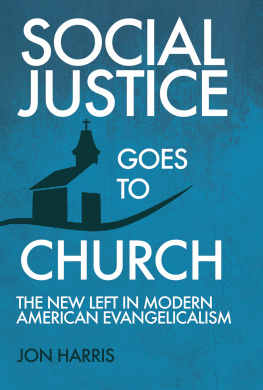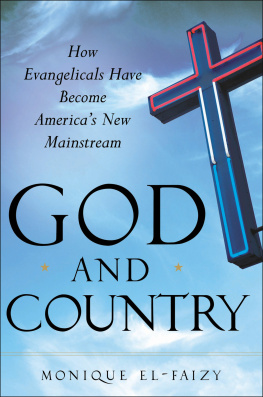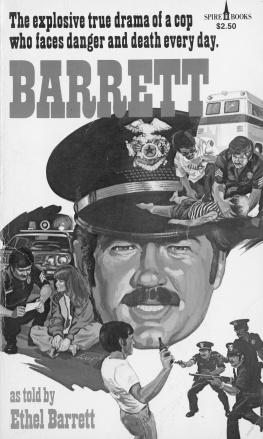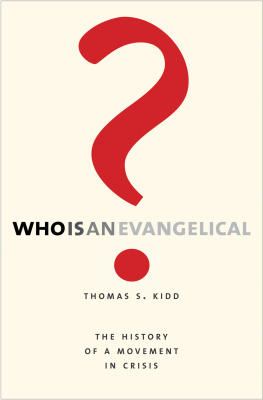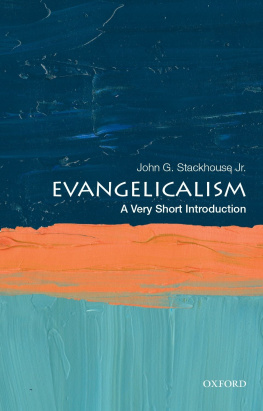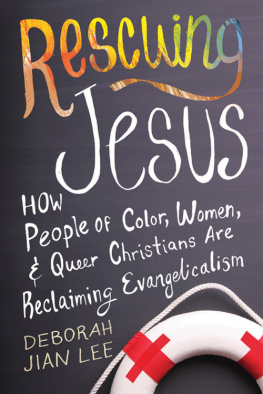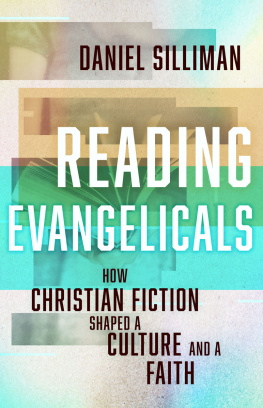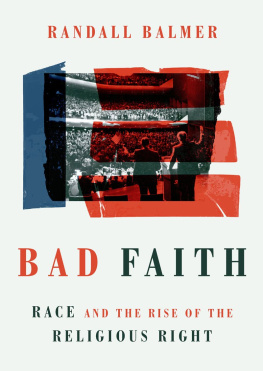Jon Harris excellent study shows how and when the current social justice movement found its way into the evangelical church. Along the way, he reveals a stark realitythat social justice in its spiritualized form parrots the gospel message, positioning itself not as a gospel accessory but as a gospel competitor. The infusion of social justice into the gospel may well be the most dangerous problem facing the church today. Yet, it is going unnoticed in far too many circles. Social Justice Goes to Church can serve as a wake-up call exposing this most deceptive interloper.
SAMUEL C. SMITH, PH.D.
Chair and Graduate Program Director
Department of History
Liberty University
The great injunction to the Church was to preach the Gospel to the world, while not being of the world. Social justice neatly reverses this trend, preaching the ways of the world into the church. That is not its only critical reversal. The Gospel is about freedom from guilt and sin and bondage. Social justice seeks above all to apportion guilt and sin and bondage, enslaving entire demographics and requiring that they kneel before man in attrition. How important that a book of this nature should enter the fray right now. I applaud Mr. Harris for his excellent work in providing the practical means of identifying and repelling this fraudulent force, this ideological interloper, this dangerous false teaching.
DOUGLAS KRUGER
Author of Political Correctness Does More Harm Than Good: How to Identify, Debunk, and Dismantle Dangerous Ideas
Social Justice Goes to Church
The New Left in Modern American Evangelicalism
2020 by Jon Harris
All rights reserved
ISBN: 978-1-64960-080-6
eISBN: 978-1-64960-091-2
Cover Design and Interior Typesetting by Hannah Nichols
eBook Conversion by Anna Riebe Raats
No part of this book may be used or reproduced in any manner whatsoever without written permission except in the case of brief quotations embodied in critical articles or reviews.
AMBASSADOR INTERNATIONAL
Emerald House
411 University Ridge, Suite B14
Greenville, SC 29601, USA
www.ambassador-international.com
AMBASSADOR BOOKS
The Mount
2 Woodstock Link
Belfast, BT6 8DD, Northern Ireland, UK
www.ambassadormedia.co.uk
The colophon is a trademark of Ambassador, a Christian publishing company.
To Kenny Steier, a faithful friend. Until we meet again and hike the heights of heaven.
TABLE OF CONTENTS
FOREWORD
AT THIS MOMENT IN AMERICAN history, the Church has become overwhelmingly overrun with a parasitic false gospel of social justice. The very Christian faith that once gave birth to Western Civilization has been infiltrated and is, even now, collapsing under the weight of the parasite. Jon Harris focus upon the pivotal 1970s era progressives brings great clarity to those wondering about the correlation between the political deconstruction of Americanism and corresponding usurpation of the authentic Gospel of Jesus Christ through the counterfeit of the progressive Social Justice gospel.
Unlike the author, I am not a trained historian. I am a minister of the Gospel who has accepted a grace from above to interpret the world I now live in with the light of His inerrant and sufficient Scriptures. At the time of this writing, I can say with reasonable authority that the once beautiful Afghan Hound (modern Christianity) is not quite dead, but it is certainly emaciated, sickly, and lying on the ground in terrific jeopardy. With the turning of every page, Jon Harris will skillfully show you how this all came to be.
It is my prayer that the vitally important contents of Jons excellent analysis will inspire the old hound to let out one last faith-filled howla cry loud enough to summon the attention of the Merciful Master. If the Merciful Master does not intervene, my dear reader, then the hound is as good as dead. We can still repent and retreat from Marxism, humanism, hedonism, secularism, socialism, and communism. We can return to a nation of individuals who practice the discipline of self-government under the everlasting authority of the Ten Commandments, empowered by grace from on High. My sincere thanks to Jon Harris for the careful retelling of this heretofore untold drama of American history. I commend it to your reading.
REV. CARY GORDON
Sioux City, Iowa
July 24, 2020
PREFACE
HISTORICAL SURVEYS OF AMERICAN EVANGELICALISM in general, and post-WWII evangelicalism in particular, tend to overlook significant contributions made by 1970s-era progressives who helped introduce the movement to New Left critiques of American culture. In a certain respect, this is understandable. Since the formation of the religious right in the 1980s, the reputation of evangelicals, in the greater culture, has largely been associated with political conservatism. The evangelical left temporarily appeared as a flash in a pan during the early 1970s, with fringe elements remaining through the 2000s.
Yet, fifty years after progressive seeds were sewn, their fruit has grown into a tree within the soil of modern mainstream evangelicalism. Institutional evangelical responses to political situations, such as efforts to normalize homosexuality, provide a path to citizen benefits for foreign migrants, accept government restrictions during the Covid-19 quarantine, support Black Lives Matter, etc. mirror the same kind of responses given by elderly veterans of the first progressive evangelical push. Yet, the pioneers of the movement have received little attention.
Between 1980 and 1991, during the height of the religious rights influence, historian George Marsden published three books on fundamentalism and evangelicalism, including Fundamentalism and American Culture: The Shaping of Twentieth-Century Evangelicalism, 18701925. Historian Mark Noll likewise contributed to a number of related books during the same period culminating in The Scandal of the Evangelical Mind (1994).
Both Noll and Marsden associated post-World War II evangelicalism with Fundamentalism, which they conceived as a version of American Christianity shaped by Scottish common sense realism, individualism, pietism, and dispensationalism, in reaction to higher criticism, Darwinism, and the social gospel. The parallel between Fundamentalisms anti-Communist tendency and the religious rights taste for smaller government made weaving a narrative of continuity logical and possible.
Noll mentioned progressive evangelicals like Ron Sider and Richard Mouw only in passing as ambassadors for introducing evangelicalism to Anabaptist and Dutch Reformed thinking. The culturally influential evangelicals worth writing about happened to be political conservatives.
Both Francis Fitzgerald and Steven Miller wrote extensive surveys of evangelicalism in recent years. In addition to covering Fundamentalism and neo-evangelicalism, their analysis also includes holiness and reformed traditions. However, in focusing on how evangelicals relate to the broader culture, they both emphasized conservative politics. In The Evangelicals: The Struggle to Shape America (2017), Fitzgerald briefly mentioned the early 1970s... northern evangelical left as scholars who came from the Christian Reformed Church and Anabaptist sects.
H. B. Cavalcantis book

